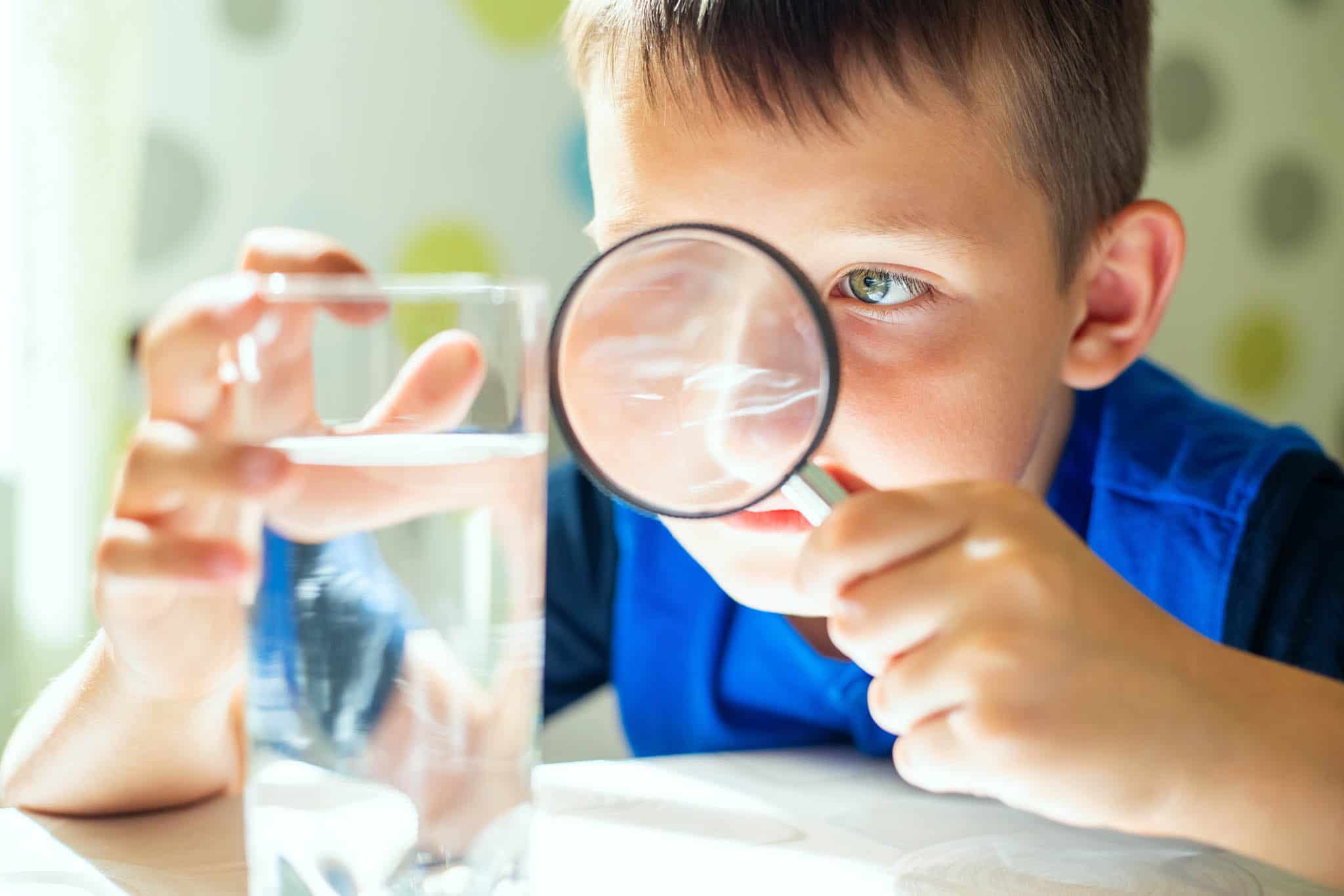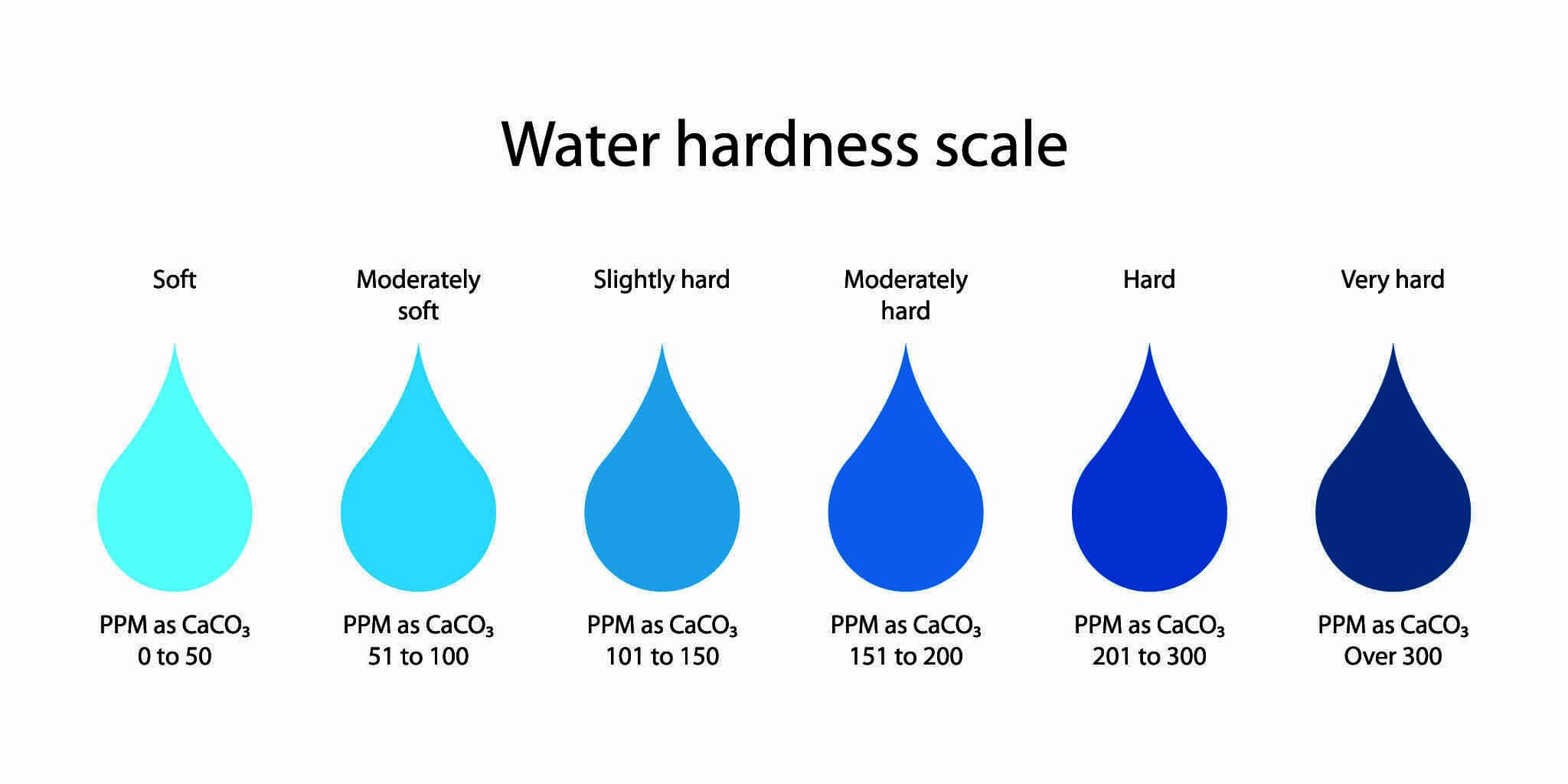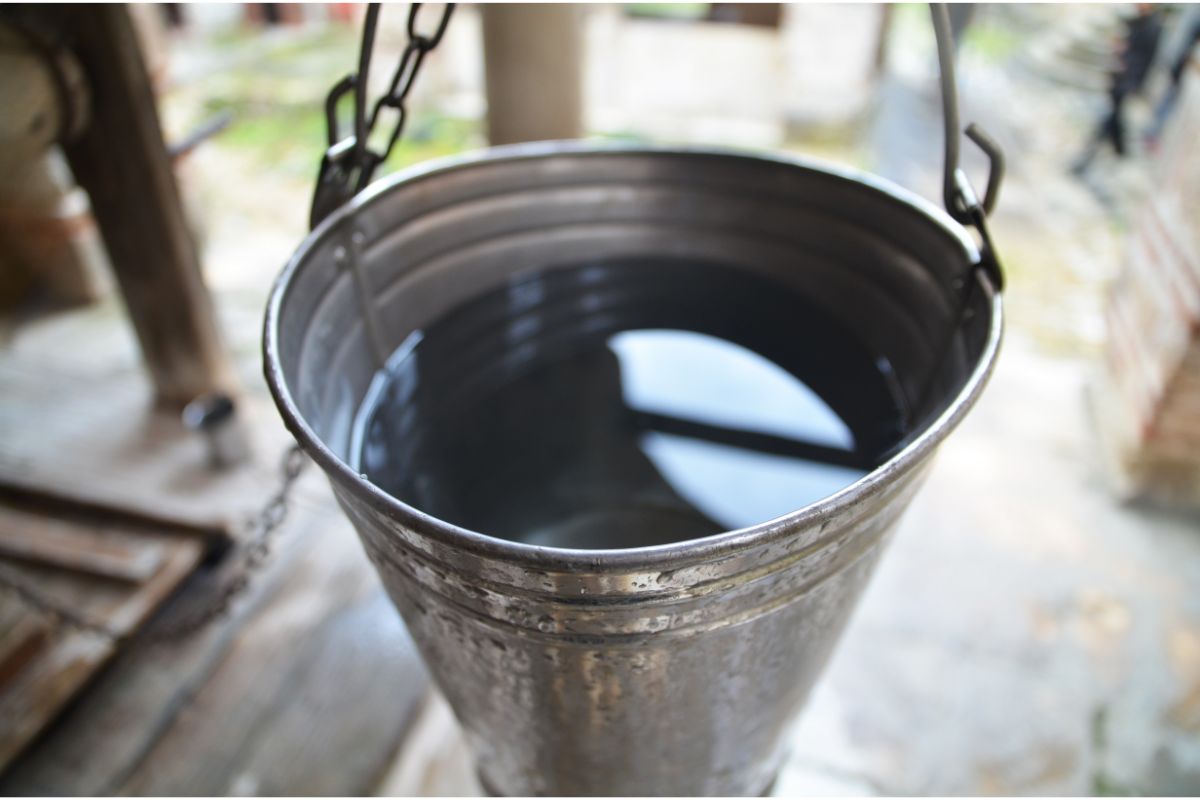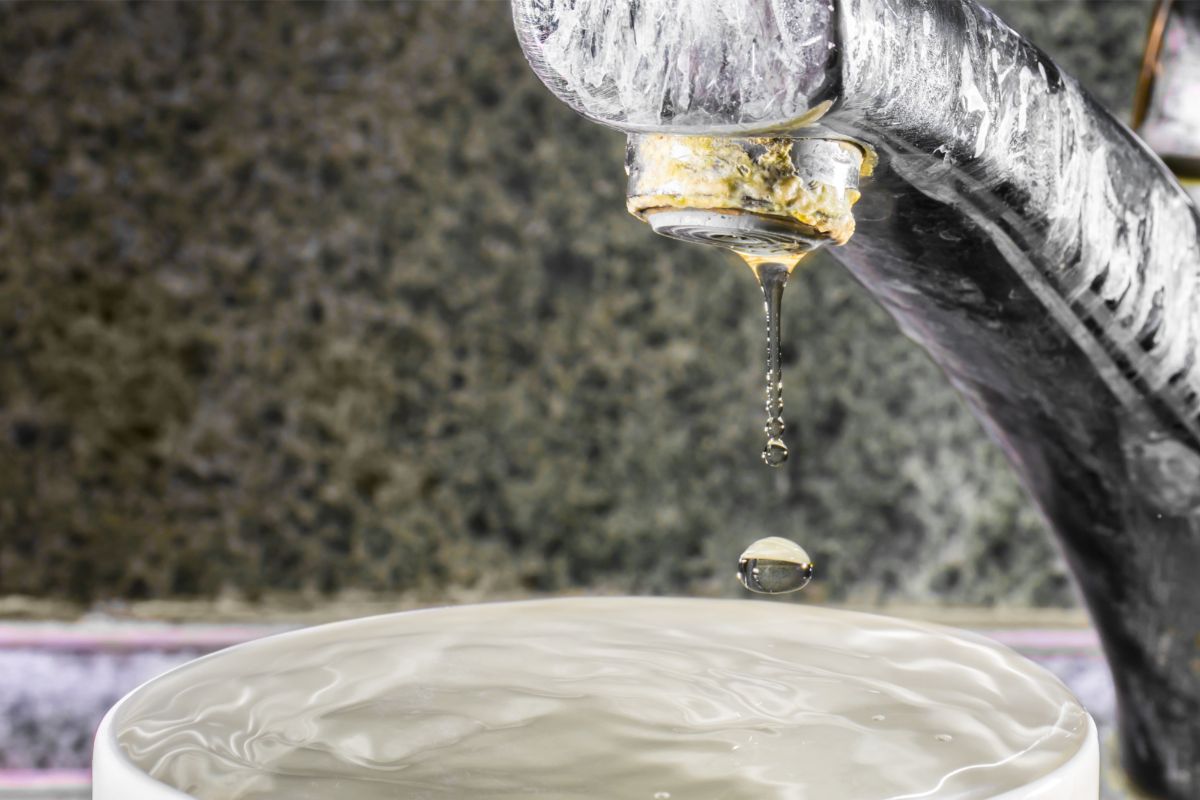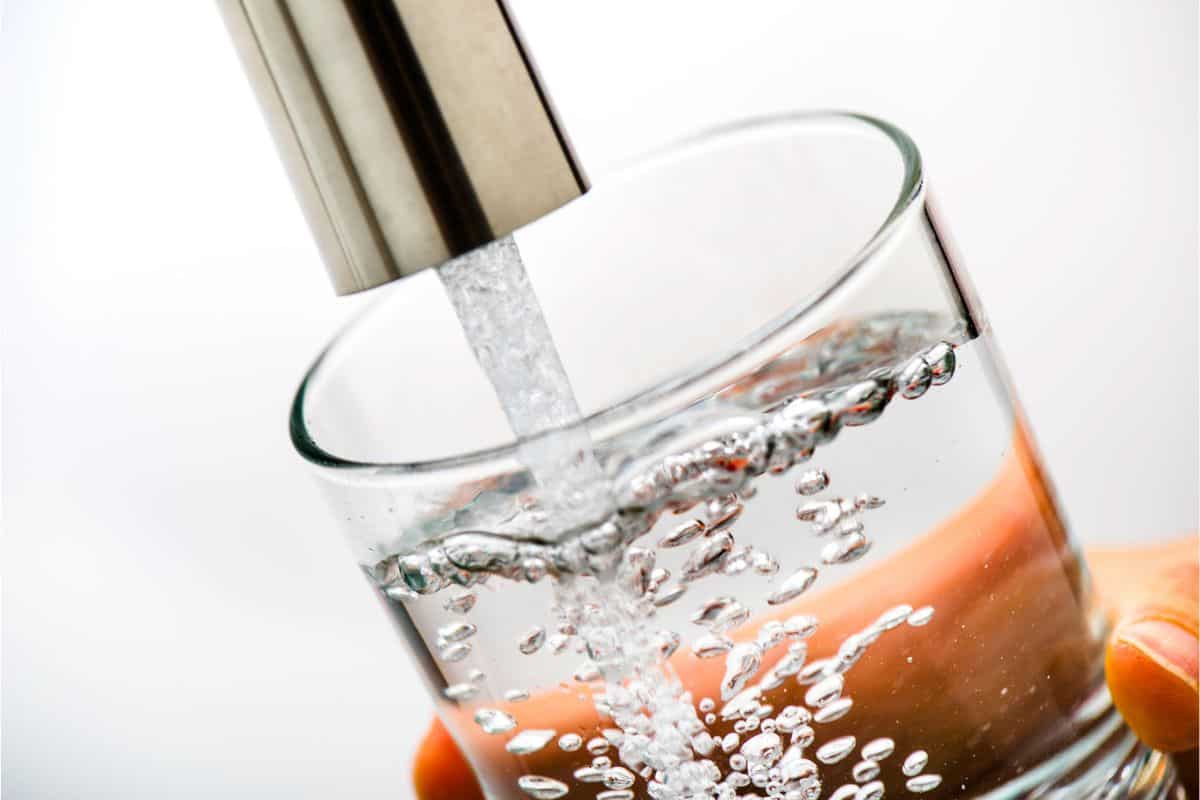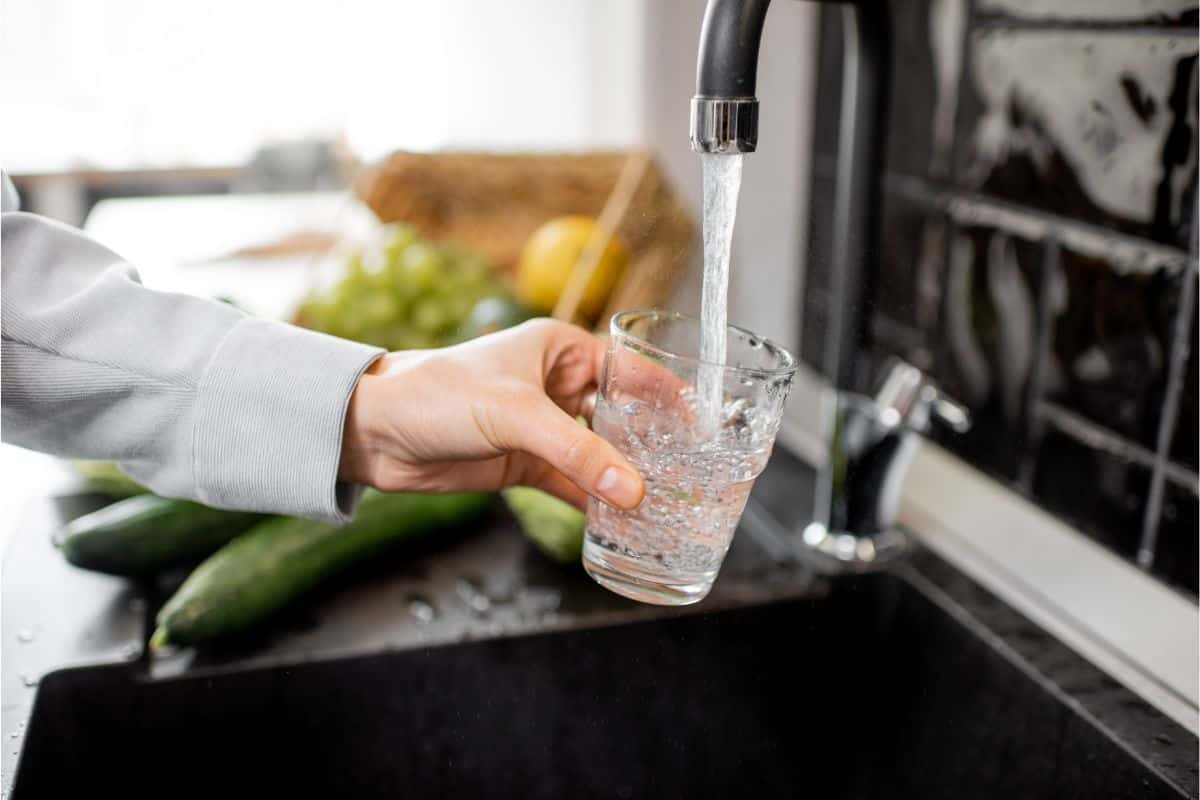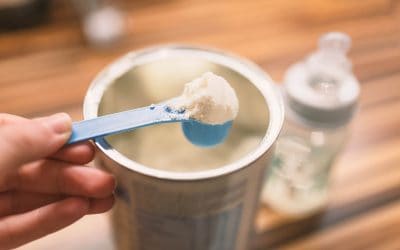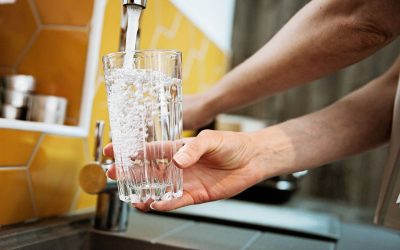Water plays a vital role in daily life, but not all water is the same. If you’ve ever noticed stains on your dishes, dry skin after a shower, or buildup in your appliances, you may be dealing with hard water. But what exactly is the difference between hard and soft water, and which one is better for your home? Let’s explore the key differences, advantages, and drawbacks of each.
Contents
What Is Hard Water?
Hard water is water that contains high levels of dissolved minerals, primarily calcium and magnesium. These minerals accumulate in water as it flows through soil and rock, making it “hard.” Hard water originates from underground sources, including well water and municipal supplies that draw from mineral-rich areas. Regions with high concentrations of limestone, gypsum, and chalk naturally have harder water due to the increased presence of calcium and magnesium.
Signs of Hard Water
- Soap Scum Buildup: Hard water prevents soap from lathering properly, leaving a filmy residue on skin, hair, and bathroom surfaces.
- Appliance Damage: Mineral deposits can clog pipes, faucets and showerheads and reduce the efficiency of dishwashers, and washing machines.
- Stiff Laundry: Clothes washed in hard water may feel rough and appear faded over time.
- Spots on Dishes and Glassware: Hard water leaves behind white spots and streaks after drying.
- Dry Skin and Hair: The minerals in hard water can strip moisture from skin and hair, leading to dryness and irritation.
- Low Hot Water Pressure: Mineral buildup in water heaters can lead to restricted water flow, causing a noticeable drop in hot water pressure.
The hardness of water is typically measured in grains per gallon (GPG) or parts per million (PPM). Water with 0-50 PPM is considered soft, 51-200 PPM is moderate, 200+ PPM is hard, and anything over 300 PPM is considered very hard. Anything over 7 GPG considered hard when measuring in grains per gallon.
You can use a home water hardness testing kit or check with your local water supplier to better understand the hardness of your local water.
What Is Soft Water?
Soft water is water that has been treated to remove or reduce mineral content, particularly calcium and magnesium. This process is usually achieved through ion exchange, where sodium or potassium ions replace hard minerals.
Signs of Soft Water
If your water is soft, you might not even give it a second thought, but you will enjoy:
- Better Soap and Shampoo Performance: Soft water creates more lather and rinses away cleanly.
- Cleaner, Spot-Free Dishes: Without excess minerals, dishes dry without streaks or residue.
- Longer-Lasting Appliances: Soft water reduces scale buildup, prolonging the life of water heaters, coffee makers, and washing machines.
- Softer Clothes: Laundry feels softer, and colors stay vibrant longer.
- Hydrated Skin and Hair: Soft water is gentler on skin and hair, helping to retain natural oils.
Comparing Hard Water vs Soft Water
Both hard and soft water have advantages and disadvantages, depending on their intended use. Here’s how they compare:
Effects on Plumbing and Appliances
- Hard Water: Leads to limescale buildup in pipes and appliances, reducing efficiency and lifespan.
- Soft Water: Prevents mineral deposits, keeping appliances running smoothly for longer.
Impact on Skin and Hair
- Hard Water: Can cause dryness and irritation due to mineral residue left on the skin.
- Soft Water: Leaves skin and hair feeling smoother and less prone to dryness.
Drinking Water Quality
- Drinking hard water – is it bad for you? Hard water is generally safe to drink and can provide beneficial minerals. However, excessive hardness may contribute to kidney stones or cardiovascular concerns in some cases.
- Is it OK to drink softened water? Softened water is safe, but the added sodium may not be ideal for those on low-sodium diets. Soft water may have a slight sodium taste, but this is usually unnoticeable unless your water has been extremely hard before softening. Reverse osmosis filters can help remove excess sodium if necessary.
- Can I use soft water for cooking? Yes, but some people prefer hard water for cooking pasta and vegetables due to the natural mineral content.
- Can I use hard water for baby formula? Yes it is safe to do so and you can also use filtered water for baby formula too.
Hard Water Treatment: How to Fix Hard Water
The most effective way to fix hard water is by using a water softener or a whole house reverse osmosis filter system. Water softeners work by removing calcium and magnesium through an ion exchange process, replacing them with sodium or potassium.
- Salt-Based Water Softeners: These systems effectively remove hard minerals but add a small amount of sodium to the water.
- Salt-Free Conditioners: These do not remove minerals but alter their structure, preventing scale buildup.
- Reverse Osmosis Systems: These water filter out nearly all dissolved solids, providing highly purified water.
- Magnetic or Electronic Water Descalers: These alter the properties of minerals to reduce scale buildup without removing them.
Should You Soften Your Water?
Whether you should invest in a water softener depends on your specific needs. If you struggle with scale buildup, dry skin, or inefficient appliances, softening your water could be beneficial. However, if you prefer the natural mineral content of hard water and don’t experience major issues, you may not need a water softener.
Which Areas in the U.S. Have Hard Water vs Soft Water?
Hard water is common in many parts of the United States, particularly in the Midwest, Southwest, and parts of the Northeast. States such as Texas, Arizona, California, and Nevada are known for high water hardness levels. Cities like Indianapolis, Las Vegas, San Antonio and Phoenix often experience very hard water.
Soft water is more prevalent in areas with fewer natural mineral deposits. The Pacific Northwest, including Washington and Oregon, generally has softer water. Parts of New England, such as Boston, and many areas near the Great Lakes also have naturally soft water.
Hard and Soft Water In Major Cities
💧 Very Hard Water (High Mineral Content)
- Las Vegas, NV – One of the hardest water supplies in the U.S.
- Phoenix, AZ – Very high calcium and magnesium levels.
- San Antonio, TX – Primarily sourced from the Edwards Aquifer.
- Indianapolis, IN – Heavy reliance on limestone aquifers.
- Salt Lake City, UT – Mountainous region with high mineral runoff.
- Des Moines, IA – Groundwater sources contribute to hardness.
- Milwaukee, WI – Hard water due to Lake Michigan supply and groundwater sources.
- San Diego, CA – Hard water from the Colorado River.
- Los Angeles, CA – Hard water from a mix of groundwater and imported sources.
- Houston, TX – Hard water from surface and groundwater supplies.
- Orlando, FL – Groundwater from the Floridan Aquifer, rich in calcium.
- Fresno, CA – Heavy reliance on groundwater leads to hard water.
- El Paso, TX – Primarily sourced from the Rio Grande and wells.
- Albuquerque, NM – Water sourced from aquifers contains high mineral content.
💧 Hard Water
- Dallas, TX – Primarily surface water but still high in minerals.
- Austin, TX – Edwards Aquifer contributes to hardness.
- Philadelphia, PA – Schuylkill and Delaware Rivers supply moderate to hard water.
- Detroit, MI – Moderate to hard, varies by treatment.
- Columbus, OH – Groundwater sources lead to moderate hardness.
- Oklahoma City, OK – Water from local reservoirs contains minerals.
- Kansas City, MO – Missouri River water contains significant minerals.
- Louisville, KY – Hardness levels fluctuate depending on the treatment.
- Memphis, TN – Groundwater sources can make water harder.
- Minneapolis, MN – Moderate to hard, varies by source.
💧 Moderate Hardness (Varies by Region)
- Miami, FL – A mix of treated groundwater and surface water.
- Denver, CO – Snowmelt source but contains minerals.
- Washington, DC – Potomac River water contains moderate mineral levels.
- Chicago, IL – Lake Michigan water is softer but still has some hardness.
- Boston, MA – Varied levels depending on treatment plants.
- Nashville, TN – Moderate water hardness from reservoirs.
- Charlotte, NC – Surface water sources contribute to moderate hardness.
- New Orleans, LA – Mississippi River source leads to moderate hardness.
- Cincinnati, OH – Ohio River water has some hardness.
- Raleigh, NC – Surface water from reservoirs results in moderate hardness.
💧 Soft Water (Low Mineral Content)
- Seattle, WA – Rain-fed rivers provide soft water.
- San Francisco, CA – Hetch Hetchy Reservoir supplies naturally soft water.
- Portland, OR – Bull Run Watershed provides soft water.
- Hawai’i (Honolulu, HI) – Volcanic filtration leads to soft water.
- NYC, NY – Catskill and Delaware Watersheds provide naturally soft water.
- Atlanta, GA – Moderate to soft, depending on the season.
- Buffalo, NY – Lake Erie water has low hardness.
- St. Louis, MO – Mississippi River source is softened in treatment.
- Richmond, VA – James River source with soft to moderate hardness.
- Pittsburgh, PA – Soft to moderate depending on seasonal fluctuations.
Conclusion
Understanding the differences between hard and soft water can help you make the best choice for your home. If you’re struggling with scale buildup, dry skin, or inefficient appliances, a water softener or water filter installation may be a good investment. On the other hand, if you appreciate the natural minerals in hard water and don’t notice any issues, you might not need one.
For more expert water advice in your local area, checkout our drinking water quality guides covering 40+ locations!
